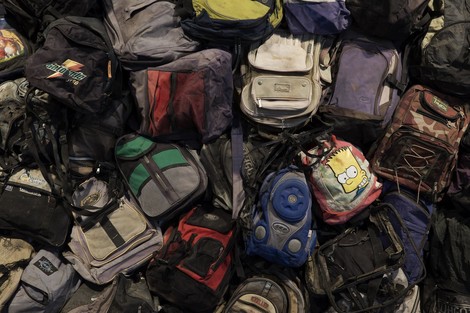Your podcast discovery platform
Curious minds select the most fascinating podcasts from around the world. Discover hand-piqd audio recommendations on your favorite topics.

piqer for: Globalization and politics Global finds
Luis BARRUETO is a journalist from Guatemala. Studied business and finance journalism at Aarhus University in Denmark and City University London.
Border Patrol Enforcement in the US: A Podcast on the History, Social Effects and Human Costs
Radiolab is a podcast and radio production in which hosts Jad Abumrad and Robert Krulwich explore difficult topics ranging from science to philosophy in an accessible manner. But while some of its classic episodes focus on, for example, the intricacies of endangered species conservation, or whether our beliefs on blame could be revised, the following is an in-depth exploration of the United States' Southern Border, and the lives of people living – and sometimes dying – in its surroundings.
The Trilogy's first episode focuses on the stories of high school students in one of the poorest neighborhoods in El Paso, Texas, became the targets of one of the largest federal law enforcement agencies, the Border Patrol. Their experience illustrates how the US-Mexico border has in recent years changed dramatically, often at the peril of migrants making their way to the United States, and that of communities in areas surrounding the border.
In episode two, we follow the story of Silvestre Reyes, which led the implementation of Operation Blockade, a social experiment responsible for diverting migration patterns along the entire US-Mexico border, and which got nation-wide attention as protests sparked and the White House started paying attention.
In episode three, anthropologist Jason de León follows the trail of a grisly discovery in Arizona, a flesh-stripped human arm. With help from medical researchers and humanitarian groups, he found it used to belong to a woman called Maricela. He connects with her family, and analyzes the human cost of Border Patrol Policies.
Here, Radiolab goes more in depth, trying to parse what drives migrants like Maricela, despite the high risks, and what can be done to deter them – not much, as you may be guessing already.
